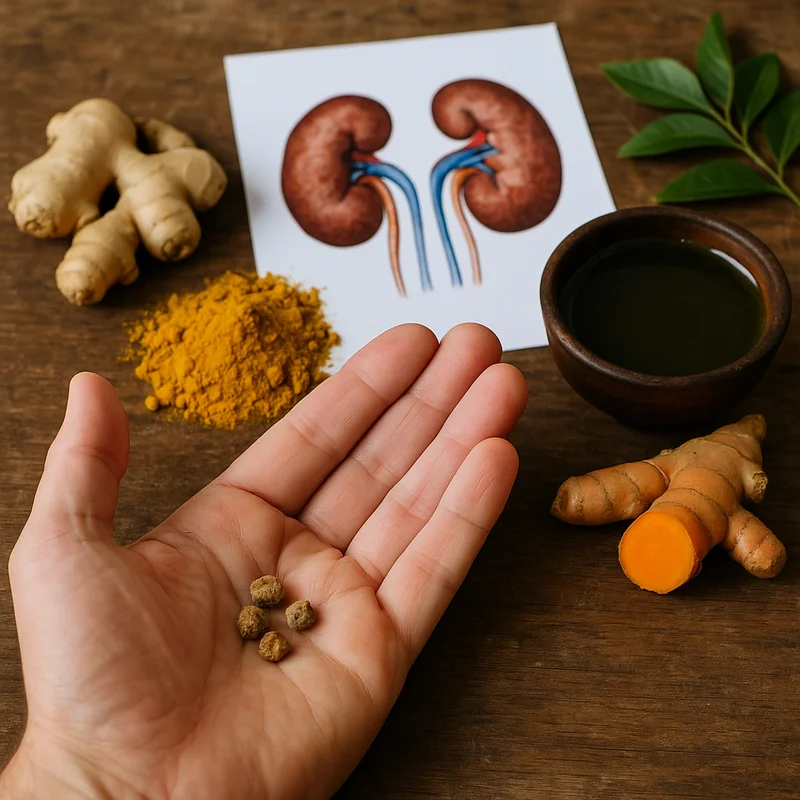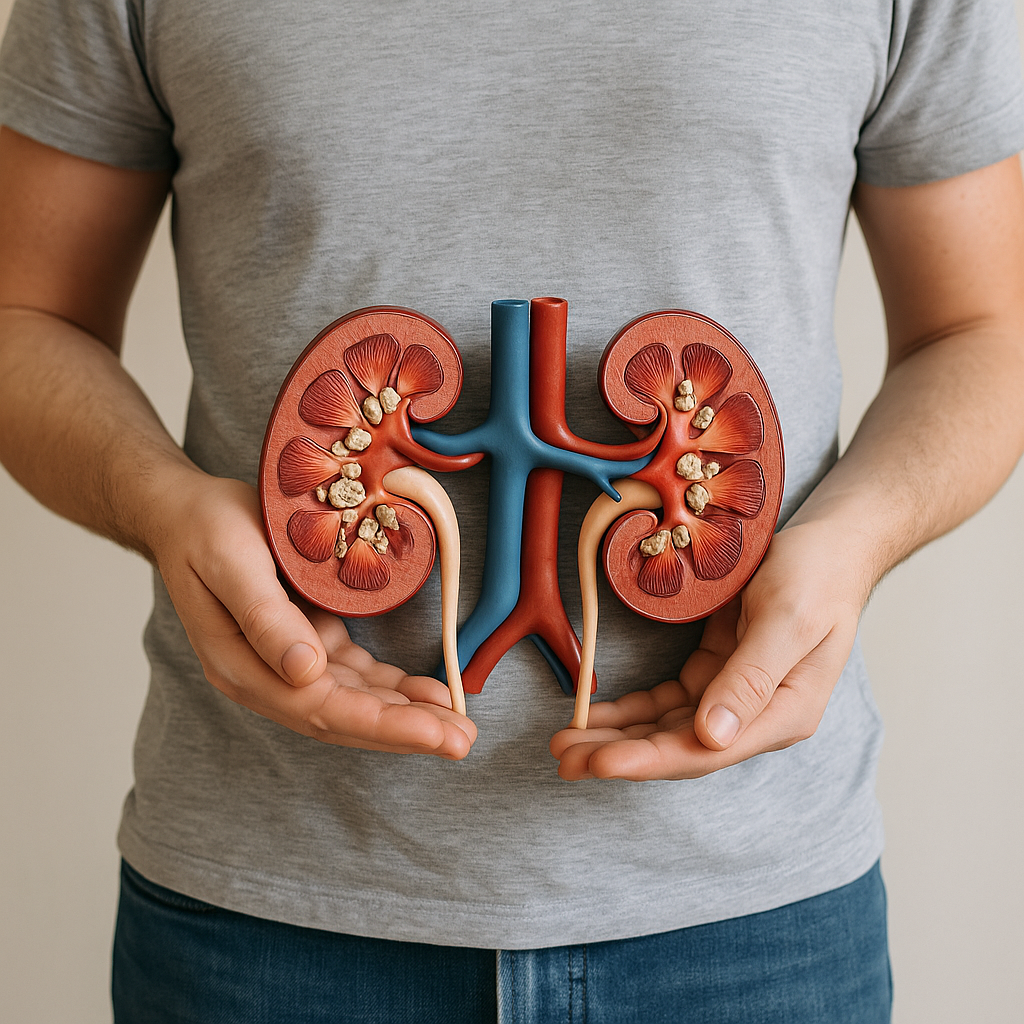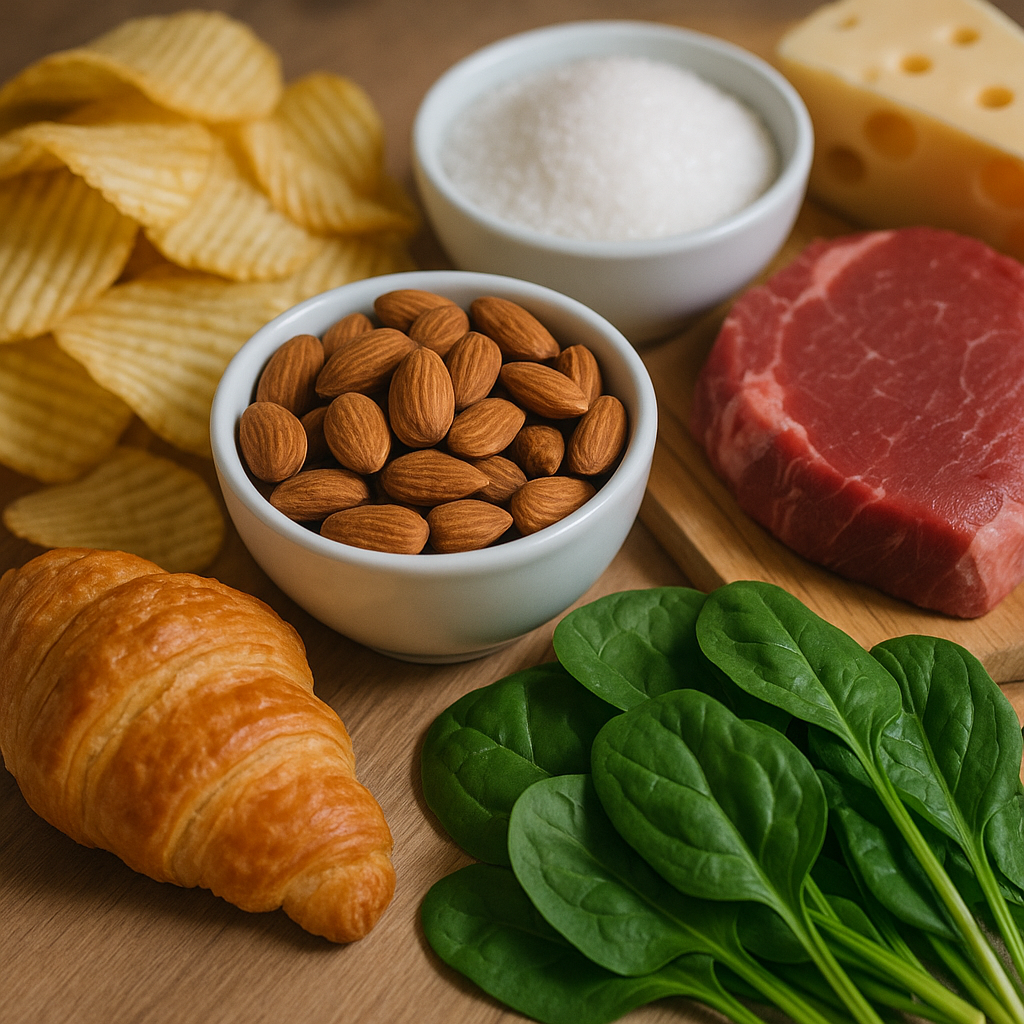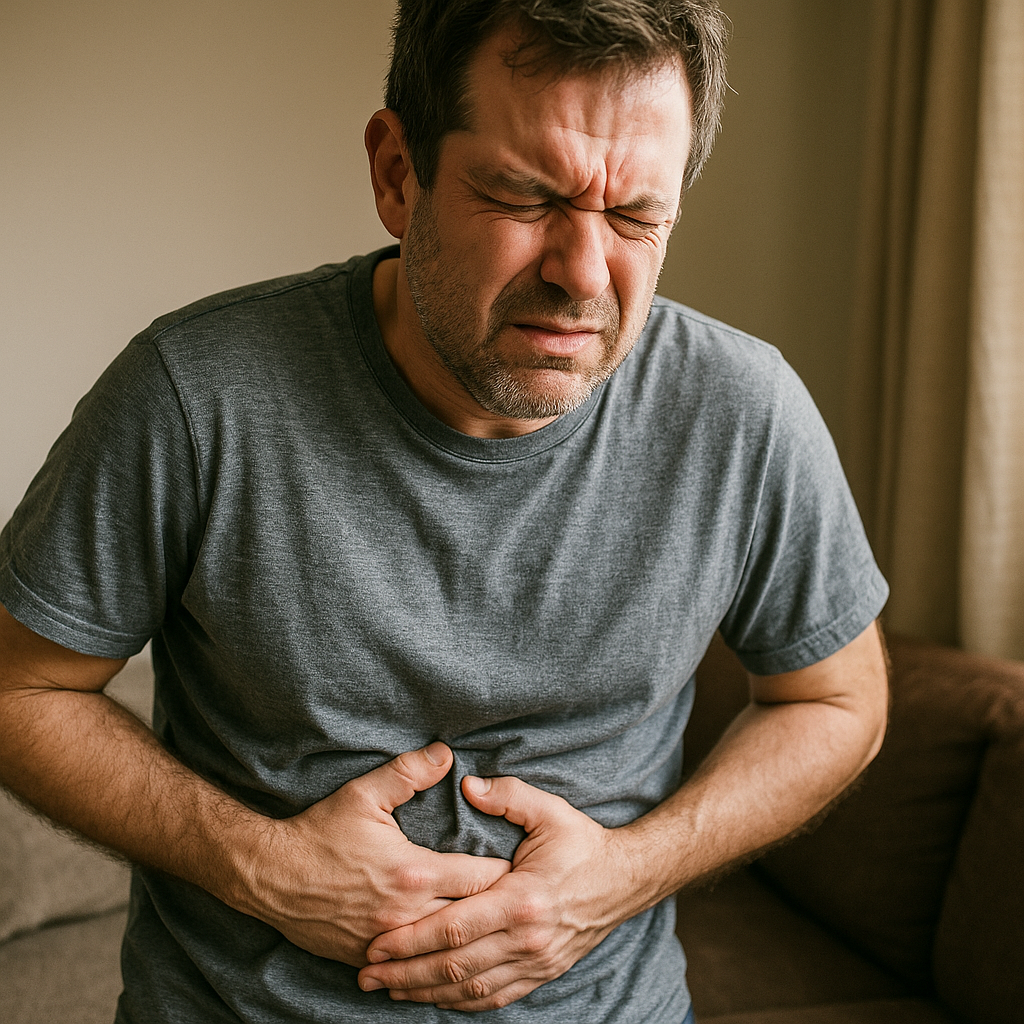What Causes Kidney Stones: Ayurvedic Explanations and Remedies

Kidney stones are more common than people think—and honestly, more confusing too. If you’ve ever asked yourself what causes kidney stones or felt that mysterious jab of pain and wondered if it's something serious, you’re not alone. Every year, millions of people pass these tiny yet terrible pebbles, and no, it doesn’t get any easier the second or third time around.
Now here’s where it gets interesting: modern medicine tends to zero in on mineral imbalances and dehydration. That’s fair. But Ayurveda—India’s ancient science of life—offers a deeper look. Not just at kidney stones symptoms, but at the subtle imbalances that cause them in the first place. It talks about energy systems, digestive fire (Agni), and the accumulation of toxins (Ama). And it gives us tools—herbs, foods, habits—that don’t just manage symptoms but actually support the body’s natural detox and healing processes.
So let’s slow down, take a breath, and look at this holistically. Because sometimes, answers come from ancient places.

What Are Kidney Stones?
Kidney stones are hard mineral deposits that form in the kidneys and, if you’re unlucky, make their painful journey down the urinary tract. These stones can vary in size—from a grain of sand to a marble—and can cause intense pain, blood in the urine, nausea, or even a full-blown emergency room visit.
But wait, here’s something odd: some people discover kidney stones in the toilet, never even realizing they had them. Others get floored by the pain. That unpredictability? Maddening.
Most stones are made of calcium oxalate—hence the term calcium kidney stones—but there are other types too, including uric acid and struvite stones. And no, it’s not just about drinking too little water. There’s more to it. Much more.
What Causes Kidney Stones According to Ayurveda?
While Western medicine focuses on things like hydration, oxalate levels, and certain high-risk foods (what foods cause kidney stones—we’ll get to that), Ayurveda zooms out. It looks at the person as a whole: body, mind, diet, habits, and even emotions.
Let’s break down a couple of core Ayurvedic concepts.
Imbalance of Doshas and Agni
Ayurveda believes our body is governed by three doshas: Vata (air/space), Pitta (fire/water), and Kapha (earth/water). When these fall out of balance—due to poor diet, irregular routines, stress, or seasonal shifts—Agni (our digestive fire) weakens.
A weak Agni means food isn’t digested properly, leading to toxic buildup. In people with high Pitta, for instance, this might show up as overly acidic urine, contributing to the formation of stones. Those with Vata imbalance may experience dryness and spasms, making stone passage more painful.
Accumulation of Ama (Toxins)
This is where things get even more interesting. Ama is sticky, undigested waste that clogs the body’s systems. It’s formed when digestion is weak, food is incompatible (like mixing milk and salt), or you’re just eating on the go all the time.
Over time, this Ama can accumulate in the urinary tract, creating a ripe environment for stone formation. Think of it like mineral sludge building up in a pipe—eventually, something’s going to get stuck.
So when Ayurveda talks about what causes kidney stones, it’s not just about what you’re eating—it’s about how you’re living.
Common Signs and Symptoms of Kidney Stones
Let’s be honest: kidney stones aren’t exactly subtle. You don’t usually wake up one day and go, “Hmm, I might have a kidney stone.” It’s more like: you’re on the floor, gripping your side, wondering if this is what childbirth feels like.
Still, the symptoms can vary. Some people pass stones without even knowing. Others… well, they live through a waking nightmare.
So here’s what to look out for:
-
Severe pain in the back, side, or lower abdomen — this is the big one. It might come in waves, get worse, then disappear, then slam back again.
-
Burning or pain while urinating. Often mistaken for a UTI.
-
Blood in urine. You might see pink, red, or brown coloring.
-
Cloudy or foul-smelling pee. Not pleasant to talk about, but important.
-
Nausea or vomiting. Especially if the stone is causing a blockage.
-
And yes — sometimes people spot kidney stones in the toilet. Tiny, hard, gravel-like things. If you see one? Congrats... and ouch.
If you’ve had one before, chances are you’ll recognize the signs. If not, the “Is this normal?” panic is very real. Trust your gut—then talk to a pro.

What Foods Cause Kidney Stones?
Ah, the food question. Everyone asks it—“what foods cause kidney stones?”—and the internet has about five million answers. The tricky thing? It's not just what you eat, but how your body digests it.
Still, certain foods are more likely to contribute to stone formation:
-
Oxalate-rich foods like spinach, beets, nuts, and chocolate (yep, unfortunately).
-
Too much salt, which increases calcium in urine.
-
High animal protein intake, which can increase uric acid stones.
-
Sugary sodas, especially colas. Total bad guys here.
Foods to Avoid Based on Dosha Type
This is where Ayurveda comes in with a little more nuance.
-
For Pitta types (prone to heat, inflammation, acidity): Avoid overly spicy, sour, or fermented foods. Tomatoes, vinegar, pickles? Maybe not your best friends.
-
For Vata types (dry, light, and cold by nature): Avoid raw, dry foods. Think more soups and stews than salads.
-
For Kapha types (heavier, more prone to mucus and sluggish digestion): Cut down on dairy, fried food, and anything too sweet.
It’s not one-size-fits-all. It’s more like: listen to your body, understand your dosha, and choose accordingly.
How to Prevent Kidney Stones Naturally
The best treatment is always prevention. And in Ayurveda, prevention isn’t a pill—it’s a rhythm. It’s waking, eating, moving, and resting in sync with nature.
Daily Habits and Ayurvedic Practices
-
Stay hydrated, but sip, don’t chug. Room temperature water with a squeeze of lime or a pinch of cumin can help.
-
Eat mindfully. Warm, fresh, home-cooked meals. Avoid leftovers, cold drinks, or eating on the run.
-
Oil massage (Abhyanga). Especially for Vata types—it keeps things flowing and supports elimination.
-
Herbal teas like coriander, fennel, and cumin (the CCF blend) are brilliant for kidney and digestive support.
These might seem small, but over time? Game changers.
Cleansing and Detox Methods (Panchakarma)
Panchakarma is Ayurveda’s crown jewel when it comes to deep detox. It’s not a juice fast. It’s a medically guided process—think of it like an oil change for your entire system.
For kidney health, therapies like Basti (medicated enemas) and Virechana (purging) help eliminate accumulated Ama and rebalance doshas.
But don’t DIY this. A qualified Ayurvedic practitioner will guide you safely, based on your constitution and current state of health.

Ayurvedic Treatment for Kidney Stones
Okay, so let’s say the pain’s already started. You’re past the prevention stage, and now it’s more about “What can I do to get this thing out of me?” That’s where Ayurvedic treatments shine—not just in symptom management, but in supporting the body to gently expel the stone and restore balance.
Effective Herbs for Kidney Support
Some herbs have a long-standing reputation in Ayurveda for breaking down or flushing out stones. A few stars of the show:
-
Gokshura (Tribulus terrestris): A classic diuretic and kidney tonic. Known for supporting urinary flow and soothing inflammation.
-
Punarnava (Boerhavia diffusa): Great for water retention and swelling—helps detox without draining energy.
-
Varun (Crataeva nurvala): Traditionally used to dissolve and expel kidney stones. Think of it as the herbal “stone crusher.”
-
Pashanbheda: Its name literally means “stone-breaking”—how’s that for direct branding?
These herbs are often taken as part of a personalized formulation—powders, decoctions, or tablets—depending on the severity and the person’s constitution.
Role of Diet, Oils, and Lifestyle Changes
No herb can outwork a bad routine.
-
Diet: Stick to warm, light, dosha-pacifying meals. Avoid excess protein, heavy oils, and processed food. Think: rice gruel, khichdi, steamed veggies, light herbal broths.
-
Oils: Internal oleation with ghee (under supervision) can help soften and dislodge stones. External massage with dosha-specific oils supports circulation and detox.
-
Sleep and stress: Ignored too often. Poor sleep weakens Agni. Chronic stress dries out Vata. It all adds up.
Kidney Stones: When to Seek Medical Help
Let’s be clear: Ayurveda is powerful, but it’s not a substitute for emergency care. There’s a time for herbs, and a time for hospitals.
Seek medical attention immediately if:
-
You have intense, unrelenting pain
-
You can’t pass urine
-
You see significant blood in urine
-
You’re experiencing fever or chills (possible infection)
-
You’ve passed a stone but the pain continues (you might have more)
Ayurveda and allopathy can work hand-in-hand. Sometimes, a scan and some pain relief are exactly what you need—no shame in that.
Conclusion
Understanding what causes kidney stones isn’t just about cutting spinach or guzzling water. It’s deeper. Ayurveda teaches us that stones form when digestion weakens, toxins build up, and energy becomes imbalanced. That means healing is possible—when we shift how we eat, move, breathe, and even think.
So yes, kidney stones are brutal. But they’re also a message. From your body, asking for attention.
If this is something you’re dealing with—or want to avoid—start tuning in. Sip warm water. Cook your food. Breathe slower. And when in doubt, reach out to a trained Ayurvedic practitioner for real, tailored guidance.
FAQs
What triggers a kidney stone to move?
Often, dehydration, physical activity, or changes in posture can jostle a stone. Sometimes they move on their own—no warning, just pain.
What not to drink when you have kidney stones?
Avoid sodas (especially colas), energy drinks, and excessive caffeine. They can worsen stone formation or irritate the urinary tract.
Will I know when I pee out a kidney stone?
Probably. You might feel a burning sensation or see a small, gritty piece in the toilet. But not always—it depends on size and location.
How can I know if I have kidney stones without a scan?
Recurring flank pain, painful urination, and blood in the urine are all strong signs. But only imaging can confirm it for sure. Ayurveda can suggest likely patterns—but for a full picture, medical testing helps.
Got any more questions?
Ask Ayurvedic doctor a question and get a consultation online on the problem of your concern in a free or paid mode.
More than 2,000 experienced doctors work and wait for your questions on our site and help users to solve their health problems every day.

